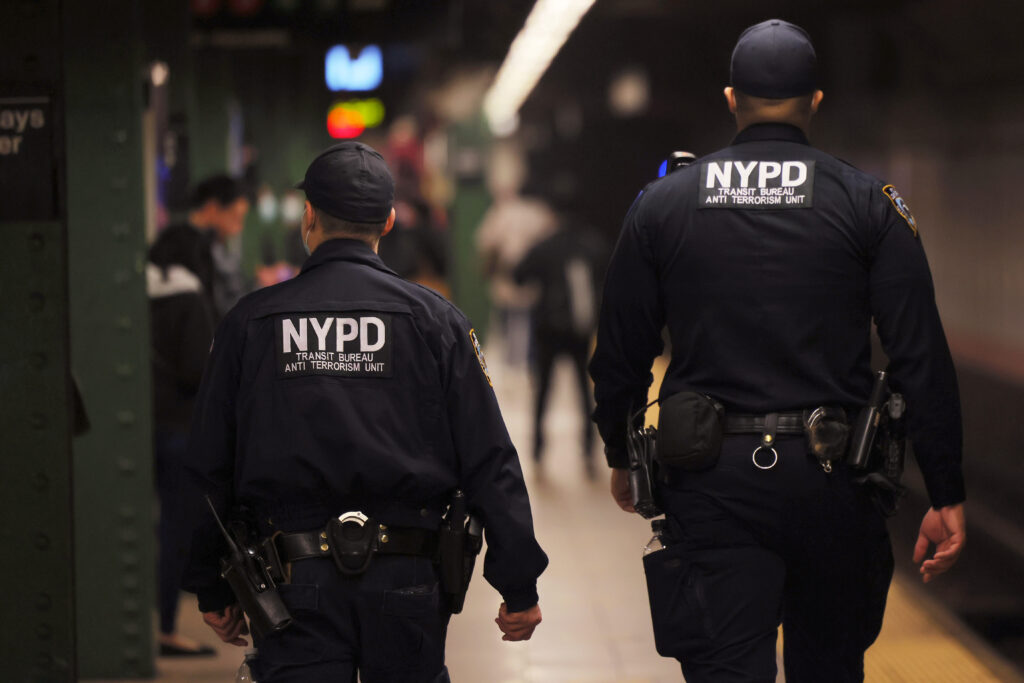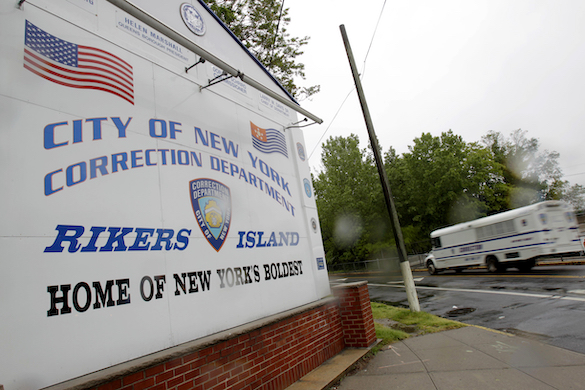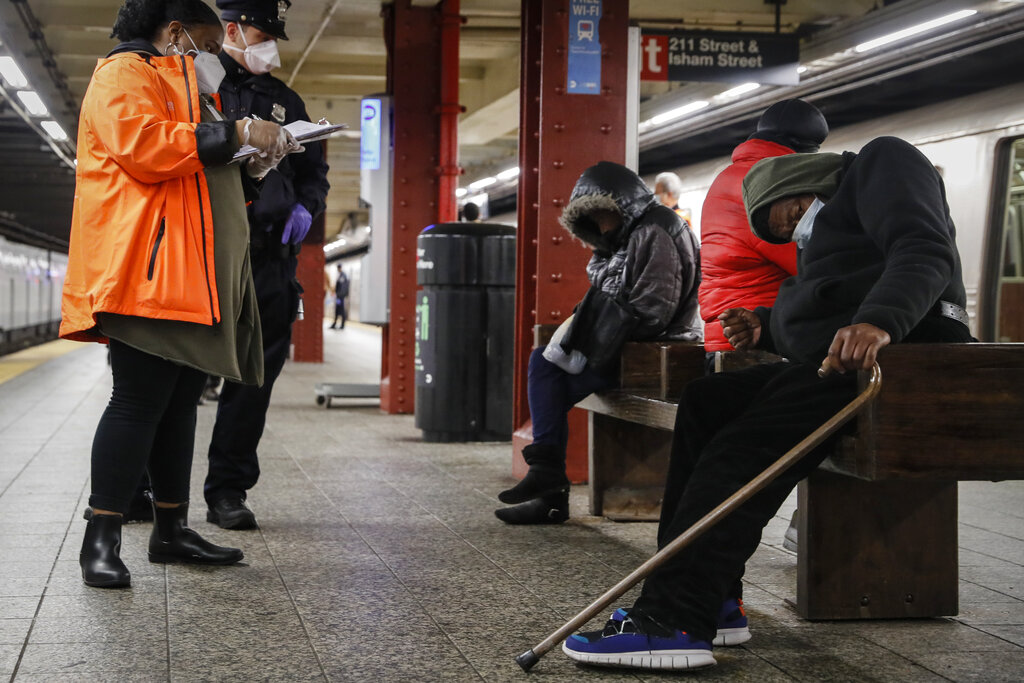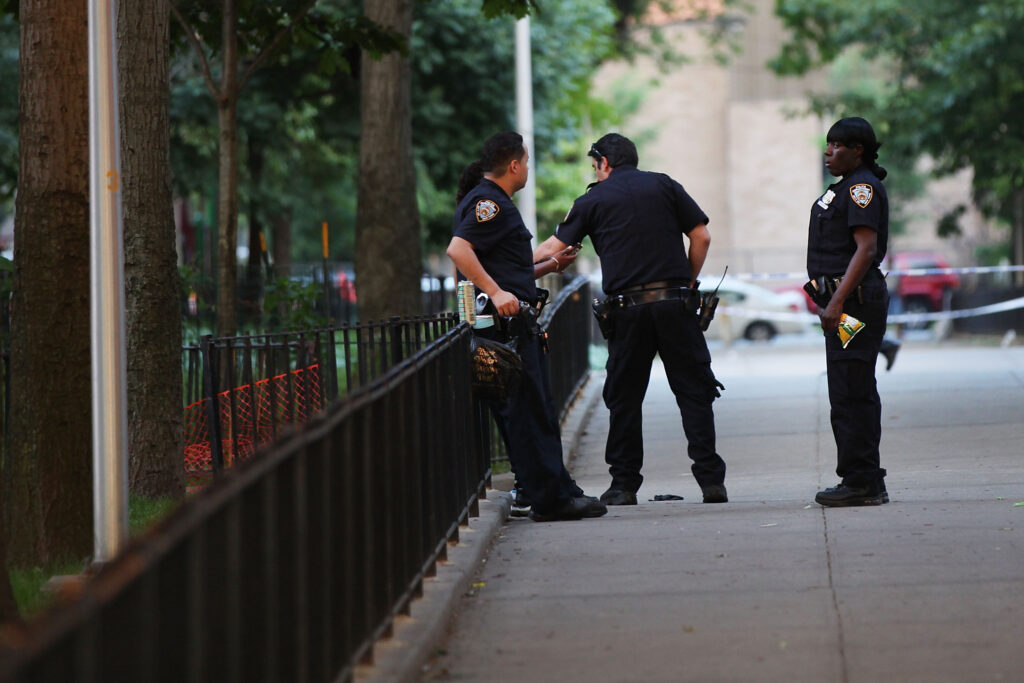Zohran Mamdani Is Moderating on Police and Crime, But What Will His Policies Mean for the Big Apple?
Since Mr. Mamdani’s upset win in the Democratic primary in June, the candidate’s past statements and platforms are under a microscope.

Democratic nominee for New York City mayor, Zohran Mamdani — who at one point wanted to “defund the police” and questioned what purpose prisons serve — is moderating his stance on law enforcement as he eyes November’s general election. Is this a genuine shift, and what will his policy proposals mean for public safety in the nation’s largest city?
The 33-year-old Democratic Socialist told the New York Times this week that he will apologize for calling the New York Police Department “racist, anti-queer & a major threat to public safety” in 2020. He says he no longer supports the “defund the police” movement and instead calls police “critical partners in delivering public safety.”
Mr. Mamdani’s critics aren’t buying it. “He said the NYPD was irredeemably racist in 2020. Was he wrong in 2020? Or is it that he now believes that the NYPD has somehow cured its racism since 2020? And if so, how did they do it?” a fellow at the Manhattan Institute, Rafael Mangual, tells The New York Sun.
“I think he understands now that he’s in a general election run, that he has to seem more moderate, but I don’t think he’s actually moderating on any of these issues,” Mr. Mangual says of Mr. Mamdani. “He has a very deep ideological commitment to de-policing and decarceration for their own sake, and I think that comes through in his entire career.”

Since Mr. Mamdani’s upset win in the Democratic primary in June, the candidate’s past statements and platform have come under a microscope. So has the platform of Democratic Socialists of America, which calls for “freedom for all incarcerated people” and decriminalizing prostitution, drug use, and all misdemeanors, the prosecution of which they call a “criminalization of working-class survival.”
Mr. Mamdani says his platform is not the same as the DSA’s, though he is a member of the party and it played a critical role in his primary victory, recruiting 50,000 volunteers to knock on 1 million doors.
It’s nothing new for a candidate to pivot to the center for a general election, but the radical nature of Mr. Mamdani’s past statements is what’s causing alarm. In one resurfaced clip, Mr. Mamdani says of prisons, “What purpose do they serve?” In another, Mr. Mamdani says, “violence is an artificial construction,” because some district attorneys label property crimes like package theft violence.
What are Mr. Mamdani’s positions now? He says he supports eliminating the New York Police Department’s gang database because it’s a “vast dragnet” that targets New Yorkers based on social media posts and “whether they go out late.” He wants to disband the Strategic Rapid Response Group, a NYPD unit that handles protests and large-scale events in the city. He also supports closing Riker’s Island jail and says he will push forward with the plan to do so by 2027, even though the four borough jails slated for construction are behind schedule and will hold only half the current Riker’s population.
“He is in favor of closing Riker’s, which will be a disaster,” former NYPD Commissioner, William Bratton, who oversaw historic crime reductions in the 1990s and again at the helm of the department from 2014 to 2016, tells the Sun. “He will not want to deal with enforcing disorder.”

The new borough jails are slated to house only 3,800 prisoners, with an additional 1,200 mental health beds. The current population of Riker’s is more than 7,000. Crime in the city spiked when the number of prisoners at Riker’s plummeted as a result of criminal justice reforms and Covid releases. Mr. Mamdani’s own platform puts the number of prisoners in need of mental health beds at over 2,500, far above what the borough jails are slated to hold.
Mr. Mamdani’s signature public safety proposal is the creation of a Department of Community Safety, whose mission is “to prevent violence before it happens by taking a public health approach to safety.” With a price tag at $1.1 billion, the plan calls for the hiring of social worker “crisis and outreach teams” to respond to 911 calls for mental health crises instead of the police. The plan also calls for peer outreach teams in the subways, repurposing vacant subway storefronts for homeless outreach, and more clubhouses to provide services to the mentally ill.
“It’s a ludicrous idea, because the only place you can get the money for it is from the police department and so that would mean taking cops off the street,” former NYPD Commissioner, Ray Kelly, tells the Sun.
Mr. Bratton says, “trying to take some responsibilities for dealing with the mentally ill away from the police department is a good one,” but he says trying to implement a program like this in New York will be difficult and cost more than $1.1 billion. “This is not a new idea, but it’s the scalability to try to staff it up — it will cost a fortune.”
Mr. Mamdani cites other programs across the country as models, most notably one in Eugene, Oregon called CAHOOTS. New York City is a bit bigger than Eugene. In the Big Apple, there are more than 200,000 calls to 911 for mental health crises a year. That’s more than 500 per day. Mr. Bratton questions where the city is going to find enough mental health workers when there is a current shortage, where those in crisis are going to go when there is a shortage of mental health treatment beds and facilities, and how the city is going to afford to pay these outreach workers a “living wage,” as Mr. Mamdani promises.

“Where is he going to find qualified mental health professionals who are willing to work for a city salary and be on call 24 hours a day, seven days a week to deal with the crazy homeless guy covered in his own feces in the Times Square subway station?” Mr. Mangual says.
Mr. Mamdani’s campaign did not respond to the Sun’s request for comment. Mr. Mangual says the Mamdani campaign is being evasive about the candidate’s positions.
“What’s he going to do with respect to force multiplying technologies like ShotSpotter? Is he going to get rid of ShotSpotter the way that Brandon Johnson did in Chicago?” Mr. Mangual says. “What’s he going to do about facial recognition, drones, license plate readers?”
Mayor Brandon Johnson eliminated Chicago’s ShotSpotter program, a real time gunshot detection program, in 2024 over concerns it overpoliced and surveilled minority communities. Underpinning much of the criminal justice reform movement and the far-left’s positions on policing is the notion that police disproportionately target minorities. That’s also why many on the left oppose quality-of-life policing, which Mr. Bratton first implemented in the 1990s — otherwise known as “broken windows” policing.
“Unfortunately, the majority of crime in New York City — the vast majority — is committed by the minority population against the minority population. They don’t want to talk about that,” Mr. Bratton says. “They want to talk about how bad ‘broken windows’ is because it impacts the minority population. Well, it impacts that portion of the minority population that are breaking the law.”
Crime is the number one issue for New Yorkers, according to most polls. Mr. Mamdani’s opponents see public safety as the Democratic Socialist’s Achilles heel. Governor Andrew Cuomo is promising to hire 5,000 additional police officers. The Republican challenger, Curtis Sliwa, says he will hire 7,000 more cops. Mayor Adams is running on the 2025 historic reductions in crime under his new police commissioner, Jessica Tisch.

Yet their attacks don’t seem to be registering with voters, who trust Mr. Mamdani to handle crime better than the rest of the field, according to a New York Times/Siena poll released Tuesday. Mr. Mamdani is also now promising to keep the NYPD budgeted for 35,000 uniformed officers. The department is currently facing a recruitment crisis with a decades-low headcount of 33,700.
“We know how to keep crime under control. This stuff is not rocket science,” Mr. Bratton says. He compares Mr. Mamdani’s and the left’s criminal justice proposals to Health and Human Services Secretary Robert F. Kennedy Jr. trying to shake up vaccine protocol after the country has virtually eliminated diseases like Polio and Measles.
“We know how to do it. We’ve been doing it. But then like the vaccine issue, we stopped doing it. We stopped applying the medicine. And what was the result? More crime, more disorder, and the inability to deal, unfortunately, with the mentally ill.”

